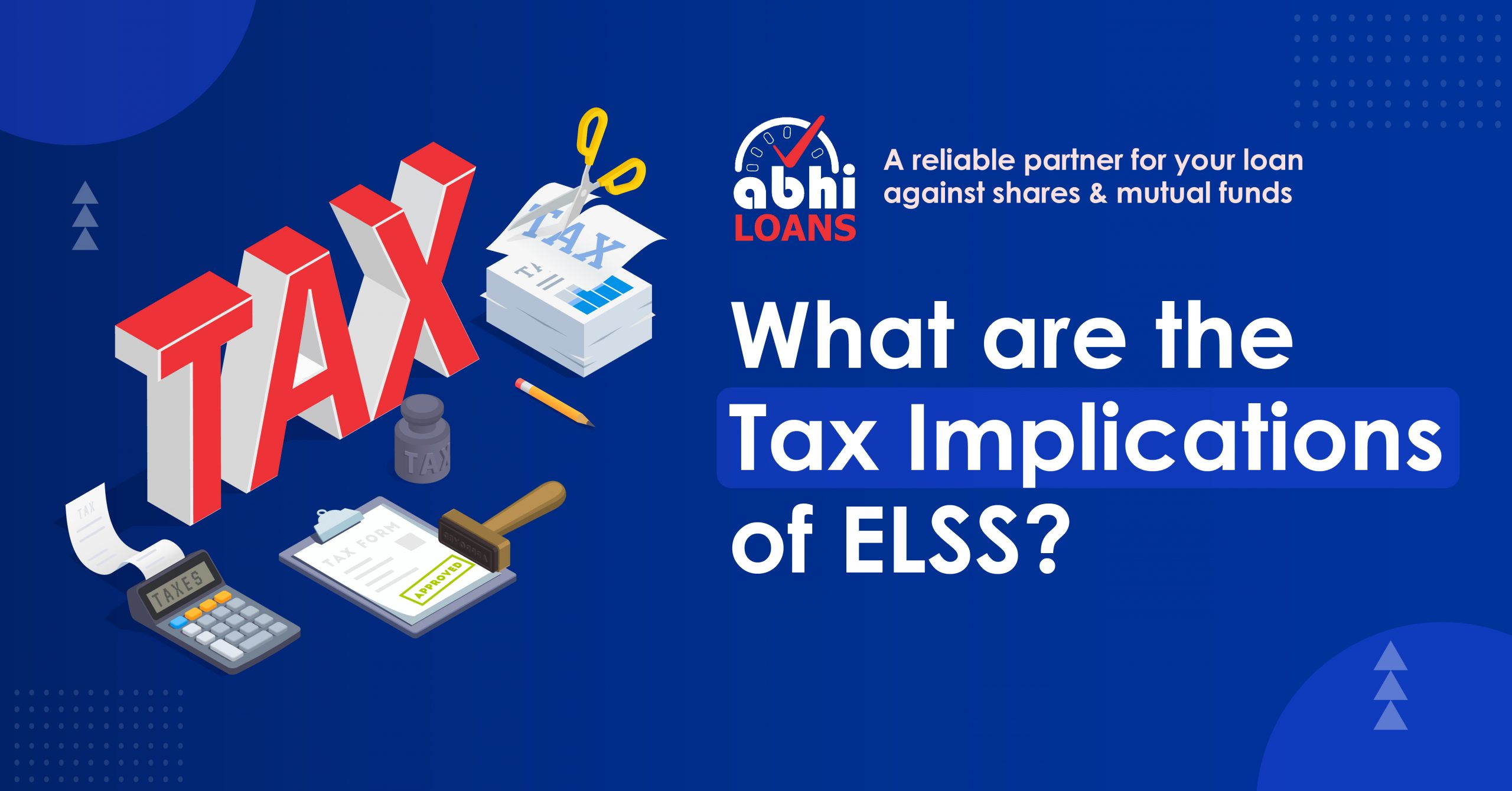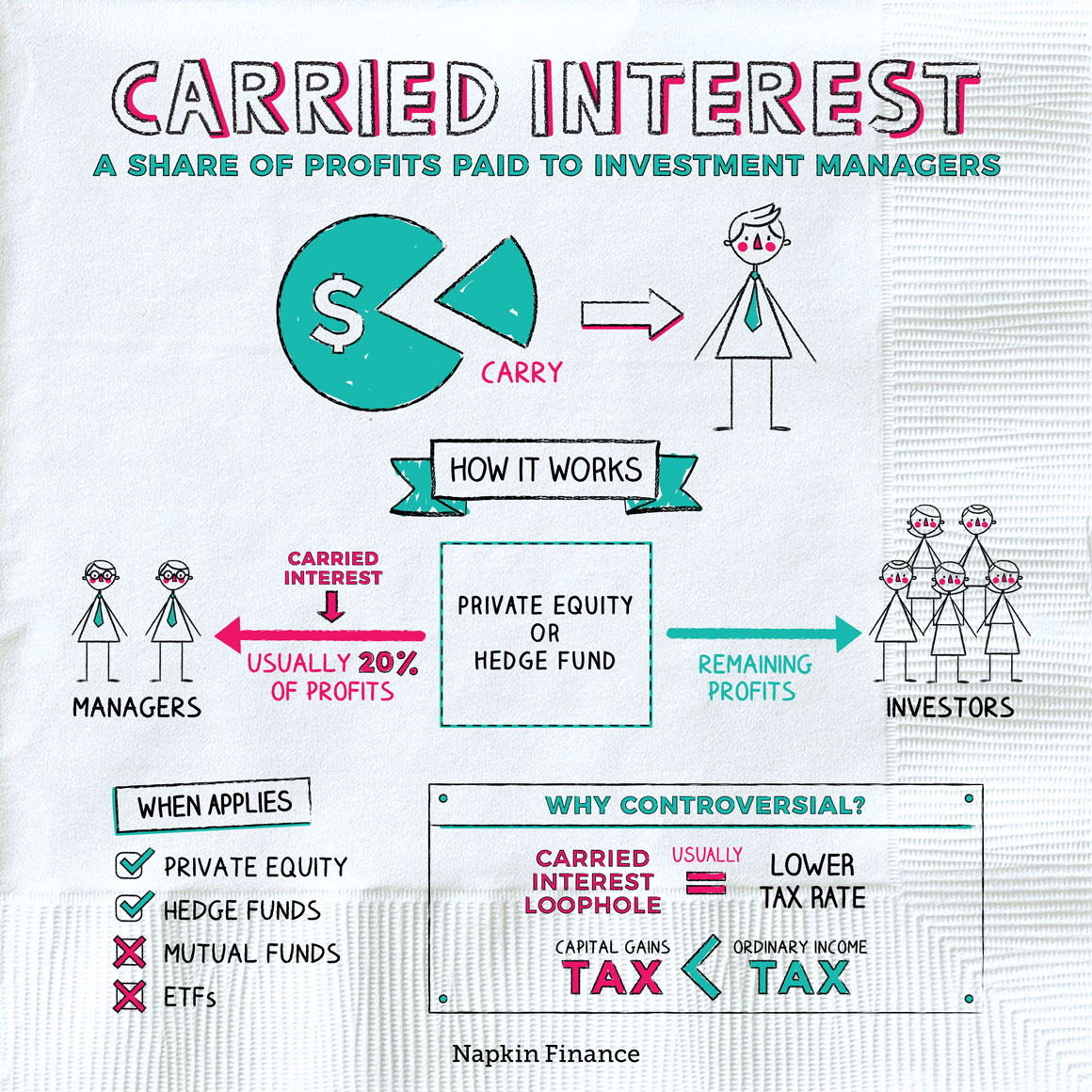Unlocking The Benefits Of Carried Interest: Navigating Tax Implications For Investment Managers

What are the Tax Implications of ELSS? - Abhiloans - Source abhiloans.com
Editor's Notes: "Unlocking The Benefits Of Carried Interest: Navigating Tax Implications For Investment Managers" have published on 08/07/23. This article is important for investment managers as it provides insights into the tax implications of carried interest, a form of compensation that is common in the private equity industry.
After some analysis and digging, we put together this Unlocking The Benefits Of Carried Interest: Navigating Tax Implications For Investment Managers guide to help you make the right decision.
Key Differences or Key Takeaways
| Carried Interest | Regular Compensation | |
|---|---|---|
| Tax Treatment | Capital gains | Ordinary income |
| Tax Rate | 20% (or lower) | Up to 37% |
| Holding Period | Must be held for at least 3 years | No holding period |
Main Article Topics
This guide covers a range of topics related to carried interest, including:
- What is carried interest?
- How is carried interest taxed?
- What are the benefits of carried interest?
- What are the risks of carried interest?
- How can investment managers navigate the tax implications of carried interest?
FAQ
This FAQ section aims to provide clarifying answers to commonly asked questions regarding the tax implications of carried interest for investment managers.

carried interest tax proposal - Liana Waggoner - Source lianawaggoner.blogspot.com
Question 1: What is the definition of carried interest in the context of investment management?
Carried interest refers to a portion of the investment profits allocated to the general partner or fund manager as compensation for managing the investment fund. It is typically structured as a percentage of the fund's profits and is paid out when the fund is liquidated or when certain performance targets are met.
Question 2: How is carried interest taxed under the current tax regulations?
Historically, carried interest has been taxed at the lower long-term capital gains rate. However, recent tax reforms have made carried interest subject to ordinary income tax rates, potentially resulting in a higher tax burden for investment managers.
Question 3: What are the potential tax consequences for investment managers receiving carried interest?
The tax implications for investment managers receiving carried interest depend on various factors, including the manager's tax bracket and the holding period of the investment. Managers should carefully consider the tax impact and consult with a tax professional to optimize their tax strategy.
Question 4: Are there any strategies that investment managers can employ to minimize the tax burden associated with carried interest?
Investment managers can explore certain strategies, such as deferring receipt of carried interest until a more favorable tax year or structuring the carried interest as part of a qualified opportunity zone fund, to potentially reduce their tax liability.
Question 5: What are the ethical considerations and potential conflicts of interest that arise with carried interest structures?
Carried interest structures can raise ethical concerns and potential conflicts of interest, as fund managers may be incentivized to take excessive risks in pursuit of higher profits, potentially at the expense of investors.
Question 6: What regulatory changes or reforms are being considered in relation to carried interest taxation?
Regulatory changes and reforms are being proposed and debated regarding the taxation of carried interest. These changes could potentially further alter the tax treatment of carried interest, so it is important for investment managers to stay informed about the evolving regulatory landscape.
In conclusion, understanding the tax implications of carried interest is crucial for investment managers. Careful planning and consultation with tax professionals can help managers navigate the complexities of the tax code and make informed decisions to optimize their tax strategies.
This FAQ section serves as a general guide, and it is advisable to seek personalized tax advice tailored to specific circumstances and objectives.
Tips
Navigating the Tax Implications of Carried Interest for Investment Managers
Carried interest, a unique compensation structure prevalent in private equity and hedge funds, offers significant benefits to investment managers. However, understanding the associated tax implications is crucial for maximizing returns and mitigating potential risks. Here are some valuable tips to help investment managers navigate this complex landscape:
Tip 1: Understand the Definition and Taxation of Carried Interest
Carried interest represents a share of the profits generated by an investment fund, typically distributed to its managers upon the fund's liquidation or sale. Under current tax laws, carried interest is taxed as a long-term capital gain in the United States, subject to a lower rate compared to ordinary income. However, specific requirements must be met for this favorable treatment, such as the manager's substantial involvement in the fund's investment decisions.
Tip 2: Optimize Fund Structures for Tax Efficiency
The choice of fund structure can significantly impact the tax treatment of carried interest. Pass-through entities, such as limited partnerships and LLCs, typically allow managers to avoid double taxation at the fund and individual levels. Utilizing offshore structures or employing special purpose vehicles may also provide additional tax planning opportunities, but professional advice is essential to ensure compliance with applicable laws and regulations.
Tip 3: Utilize Performance-Based Fees
Structuring carried interest as performance-based fees, contingent on the fund's investment performance, can strengthen its character as a capital gain. This approach aligns the manager's interests with the fund's investors and can enhance the credibility of the carried interest arrangement. Furthermore, it may provide flexibility in negotiating carried interest percentages based on specific performance benchmarks.
Tip 4: Consider Tax Deferral Strategies
Exploring tax deferral strategies can help managers maximize the benefits of carried interest. Utilizing retirement accounts, such as IRAs and 401(k) plans, allows for tax-deferred growth on carried interest distributions. Additionally, leveraging installment sale arrangements can spread the recognition of capital gains over multiple tax years, reducing the immediate tax burden.
Tip 5: Seek Professional Guidance
Navigating the intricacies of carried interest taxation requires specialized knowledge and expertise. Engaging qualified tax professionals, attorneys, and financial advisors is crucial to ensure compliance with the latest regulations, optimize tax efficiency, and minimize potential risks. Their insights can guide investment managers in structuring carried interest arrangements and implementing effective tax planning strategies.
Carried interest offers substantial advantages for investment managers, but proper understanding of the associated tax implications is paramount. By following these tips, managers can maximize their returns, mitigate risks, and navigate the tax landscape effectively. For further insights into this complex subject matter, consider exploring the comprehensive article: Unlocking The Benefits Of Carried Interest: Navigating Tax Implications For Investment Managers
Understanding the tax implications of carried interest is essential for investment managers to optimize their returns and mitigate risks. Seeking professional guidance and staying abreast of the latest regulations will help managers navigate this complex landscape successfully.
Unlocking The Benefits Of Carried Interest: Navigating Tax Implications For Investment Managers
Understanding the tax implications of carried interest is crucial for investment managers to maximize their financial position. Key aspects to consider include tax rates, eligibility requirements, holding periods, and investment strategies.
- Tax Rates: Carried interest is taxed as capital gains, which can be a lower rate than ordinary income.
- Eligibility Requirements: Only certain types of investments qualify for carried interest treatment.
- Holding Periods: Carried interest is often subject to a holding period before it can be taxed at the lower capital gains rate.
- Investment Strategies: Investment managers can structure their investments to optimize their carried interest treatment.
- Taxation of Foreign Investments: Investment managers must also consider the tax implications of investments made in foreign countries.
- Estate Planning: Carried interest can have implications for estate planning, and proper planning is essential to minimize tax liability.

Carried interest | Tax Law for the Closely Held Business - Source www.taxlawforchb.com
By understanding these key tax implications, investment managers can make informed decisions that maximize their financial returns. Proper structuring, planning, and tax compliance are essential to unlocking the full benefits of carried interest while navigating the complexities of the tax code.
Unlocking The Benefits Of Carried Interest: Navigating Tax Implications For Investment Managers
Carried interest is a form of compensation that is paid to investment managers for their performance. It is typically a share of the profits generated by an investment fund. Carried interest is taxed at a lower rate than ordinary income, which makes it a tax-advantaged form of compensation. However, there are a number of tax implications that investment managers need to be aware of when it comes to carried interest.

Tax and the SFDR: implications for fund managers - Macfarlanes - Source www.macfarlanes.com
One of the most important tax implications of carried interest is that it is subject to the alternative minimum tax (AMT). The AMT is a parallel tax system that is designed to ensure that taxpayers who benefit from certain tax breaks do not pay too little in taxes. Carried interest is one of the items that is subject to the AMT, so investment managers need to be aware of the potential impact of the AMT on their tax liability.
Another important tax implication of carried interest is that it is not eligible for the preferential long-term capital gains tax rate. This means that carried interest is taxed at the same rate as ordinary income, which can result in a higher tax bill for investment managers. However, there are a number of strategies that investment managers can use to reduce the tax burden on their carried interest, such as deferring the receipt of carried interest or investing in tax-advantaged accounts.
Investment managers should also be aware of the tax implications of carried interest when they are planning their exit strategy. When an investment manager sells their interest in an investment fund, they may be subject to capital gains tax on the proceeds of the sale. The amount of capital gains tax that is due will depend on the length of time that the investment manager held the interest and the tax rate that is applicable to the gain.
Carried interest is a valuable form of compensation for investment managers. However, it is important to be aware of the tax implications of carried interest before you receive it. By understanding the tax rules, investment managers can take steps to minimize their tax liability and maximize the benefits of carried interest.
| Tax Implication | Description |
|---|---|
| Alternative minimum tax (AMT) | Carried interest is subject to the AMT, which can result in a higher tax bill for investment managers. |
| Long-term capital gains tax rate | Carried interest is not eligible for the preferential long-term capital gains tax rate, which means that it is taxed at the same rate as ordinary income. |
| Capital gains tax on sale of interest | When an investment manager sells their interest in an investment fund, they may be subject to capital gains tax on the proceeds of the sale. |
Conclusion
Carried interest is a complex topic with a number of tax implications. Investment managers should be aware of these implications before they receive carried interest. By understanding the tax rules, investment managers can take steps to minimize their tax liability and maximize the benefits of carried interest.
The tax landscape is constantly changing, so it is important for investment managers to stay up-to-date on the latest tax laws and regulations. By working with a qualified tax advisor, investment managers can ensure that they are taking advantage of all of the tax benefits that are available to them.